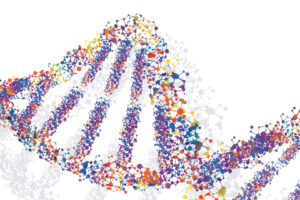Considering the outstanding inroads we’ve made in cancer prevention and detection over the years, it still seems that every day we hear about someone else receiving a cancer diagnosis. It doesn’t seem to add up.
The good news is that we are more likely to survive cancer and go on to enjoy a high quality of life than at any other time in history. Today there are about 14.5 million cancer survivors in the United States, including friends and family in your own life, no doubt.
Many are surprised to learn they are empowered to minimize many factors that cause cancer and make it more difficult for cancer to return. Unfortunately, not all cancers are preventable,
The “big four” cancer risk factors
There are four main contributors to cancer development that account for the majority of cases. Some of these risks can
be avoided, others cannot:
- Age
- Obesity
- Smoking and tobacco use
- Family history
With this said, the disease can also inexplicably strike younger people who do not have a family history, don’t smoke and are not overweight. Additional issues can also promote the development of cancerous cells. So how can you protect yourself and those you care about? Take this simple quiz to discover additional biological and environmental dangers that could elevate your personal health risk:
Do these additional dangers apply to you?
- Have you been overexposed to ultraviolet radiation?
Skin cancer is one of the most preventable cancers and still the most common. Rates have continued to increase in the U.S. every year since 2001 despite widespread efforts advising people to avoid ultraviolet (UV) radiation from the sun, sun lamps and tanning booths.
- Have you been diagnosed with certain infections or viruses such as HPV?
Some viruses and infections can cause normal cells to become abnormal. In most cases, the body fights off the infection naturally and infected cells go back to normal. But in some instances, such as the increasingly common human papillomavirus virus (HPV), these cellular changes can eventually morph into cancer cells even several years after the initial infection. We recommend everyone age 11 or 12 have the HPV vaccine.
- Have you been exposed to radiation and other toxic environmental factors?
Air pollution, asbestos, radon and other chemicals at home and in the workplace can eventually alter cells in some people which may develop (over time) into malignant tumors. For more information on environmental and chemical dangers.
Knowing your risk helps you and your doctor
Many people at higher risk never develop cancer while others with no known risk factors do. The value in being aware of your personal situation can help you and your doctor make the right choices in the development of a short- and long-term plan to screen you for certain cancers as you age and help make the best lifestyle and medical decisions to keep you healthy and cancer-free.
Comprehensive cancer prevention and detection
For many health conditions, we know that the key to prevention is early detection. That’s why at CentraState, low-and no-cost preventive health screenings are offered for colorectal, prostate, skin, lung, and breast cancer. The Statesir Cancer Center at CentraState delivers comprehensive care featuring the most up-to-date community-based preventive, diagnostic, treatment and support services to help patients and families. Patients also have direct access to clinical trials and genetic testing, when appropriate. For a complete listing of upcoming cancer screenings, call 732-308-0570 or visit centrastate.com/healthprograms. For more information about The Statesir Cancer Center, call (855) 411-CANCER.







